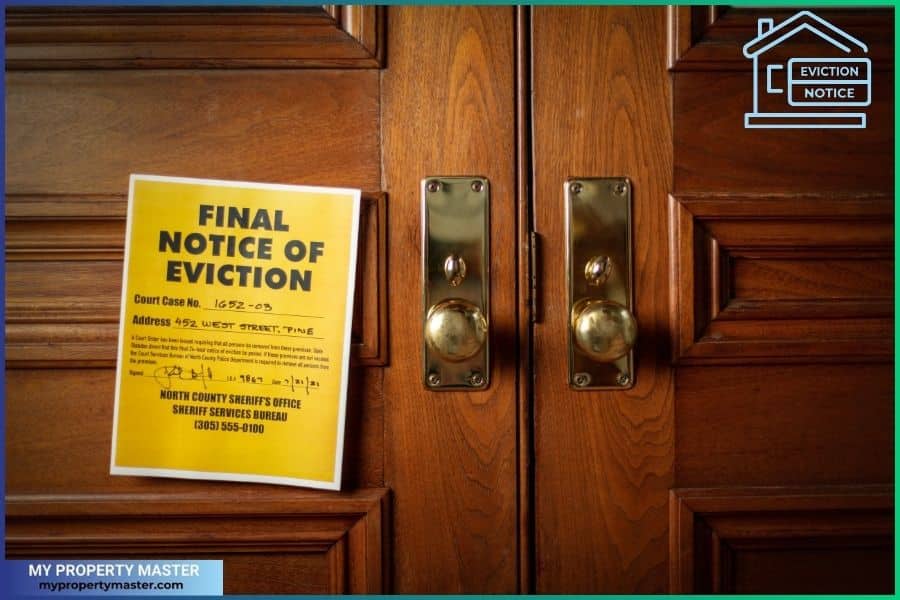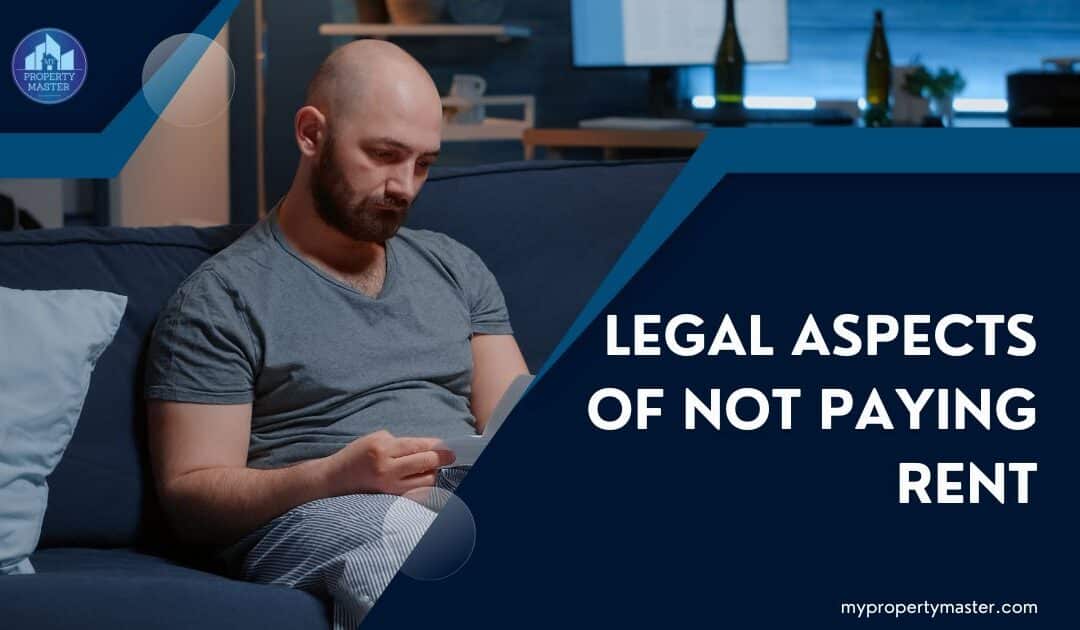Failing to pay rent is not a criminal offense; it’s a civil matter. So, a tenant will not go to jail if they fail to pay rent. In most cases, eviction is the last resort. However, there are some situations where it could lead to criminalization.
In renting properties, questions often arise about the legal consequences of failing to pay rent. Many tenants wonder, “Can you go to jail for not paying rent?” This is exactly where I will delve into the legal intricacies surrounding rent non-payment, exploring whether it’s a criminal offense and understanding the potential repercussions.
Let’s get started.
The legal landscape

Renting a property is an agreement between landlords and tenants. Failing to pay rent is considered a breach of this contract, but it’s crucial to emphasize that it is generally not a criminal offense.
Non-payment of rent is primarily a civil matter governed by landlord-tenant laws.
Civil implications
Landlords have legal recourse in the civil court system to address non-payment of rent. They can pursue eviction proceedings, file lawsuits for unpaid rent, or seek judgments against tenants.
However, these actions do not involve criminal charges or jail time.
Eviction process

Eviction is a common consequence of non-payment of rent. Landlords typically follow a legal process that involves issuing notices, filing eviction lawsuits, and obtaining court orders.
Tenants need to be aware of their rights and respond promptly to any notices received.
Legal actions by landlords
Landlords have the right to initiate legal proceedings to recover unpaid rent. This could include obtaining a monetary judgment, garnishing wages, or placing liens on the tenant’s property.
Understanding these potential consequences is vital for tenants facing financial challenges.
Criminalization of rent non-payment
While not paying rent itself is not a criminal offense, there are situations where it could lead to criminal charges.
For instance, if a tenant willfully damages the property or engages in fraudulent activities related to the lease agreement, it may escalate to a criminal matter.
Tenant defenses
Tenants have rights and defenses in cases of non-payment. It’s crucial to understand the local landlord-tenant laws, which often include provisions to protect tenants from unjust evictions or unfair practices by landlords.
Legal aid and resources

Tenants facing difficulties paying rent should explore available resources. Local legal aid organizations, tenant unions, and government programs may offer assistance or guidance.
Understanding one’s rights and seeking legal advice can be crucial in navigating challenging situations.
Frequently asked questions
A tenant can stay for a maximum of three months (including the eviction) for a month-to-month agreement. The duration one can go without paying rent varies. Landlords usually issue notices after a few days of missed payment. The legal eviction process typically takes weeks to months. However, tenants should communicate with landlords and explore assistance options to prevent severe consequences. It’s crucial to be proactive, as prolonged non-payment may lead to eviction, legal actions, or damage tenant-landlord relations.
Legal consequences may still follow if you don’t pay rent and move to a different state. Landlords can pursue legal actions in the state where the rental agreement was signed. They might obtain a judgment and use mechanisms to collect owed rent, impacting your credit. Additionally, if the unpaid rent leads to an eviction order, it may affect your ability to secure housing in the new state. Addressing non-payment issues responsibly, communicating with your landlord, and seeking legal advice to navigate potential consequences when relocating is essential.
If you don’t pay your rent in Rhode Island, the landlord typically initiates a legal process. The landlord may issue a notice, such as a 5-day Demand for Rent or Possession, giving you a chance to pay or vacate. If you fail to comply, the landlord can file for eviction in court. If the court grants an eviction order, you must leave the property. While non-payment of rent is not a criminal offense, it can lead to civil actions, affecting your credit and rental history. It’s crucial to understand and respond to legal notices promptly and seek assistance if needed.
Paying partial rent may not necessarily prevent eviction, as it depends on the landlord’s policies and local regulations. Some landlords might accept partial payments as a temporary solution, while others may proceed with eviction proceedings. It’s crucial to communicate openly with your landlord, explaining your situation and proposing a plan to catch up on payments. In many jurisdictions, landlords issue formal notices before initiating eviction, allowing tenants to address the arrears. However, consistently not paying the full rent can jeopardize your tenancy and lead to eviction if not resolved promptly.
Yes, a landlord can generally accept rent during the eviction process. If you’ve received an eviction notice and wish to prevent eviction, you should immediately communicate with your landlord. Some landlords might accept full payment, including any outstanding amounts, to halt the eviction proceedings. However, acceptance of rent during eviction is at the landlord’s discretion. Getting any agreements in writing is crucial to ensure clarity on the terms and avoid misunderstandings. Remember that local laws and regulations may also impact the landlord’s ability to accept rent during eviction.
An eviction can appear on your rental history for up to seven years. But it does not appear in your credit reports. The duration a rental eviction stays on your record can vary. However, the exact duration may depend on several factors, including local laws, the specific screening criteria of landlords or property management companies, and the policies of the credit reporting agencies.
Knowing the information in your rental history and credit report is essential. Taking steps to rebuild your rental history, such as maintaining positive rental references and addressing any outstanding issues, can improve your chances of securing housing in the future.
Conclusion
Not paying rent does not typically lead to jail time. Both landlords and tenants must be aware of their rights and responsibilities.
Failure to pay rent isn’t a criminal offense; it’s a civil matter. Though eviction is a consequence, it doesn’t involve jail time.
Landlords have legal recourse, often through eviction processes or lawsuits. While not paying rent isn’t inherently criminal, deliberate damage or fraud can escalate the situation.
Tenants possess defenses under local laws. Eviction processes vary but typically involve notices and legal proceedings. Prolonged non-payment can lead to severe consequences. Evictions can affect records for up to seven years, impacting future housing prospects.
While non-payment can result in civil actions, understanding the eviction process, legal defenses, and available resources can help navigate challenges and maintain a fair and just rental environment.






